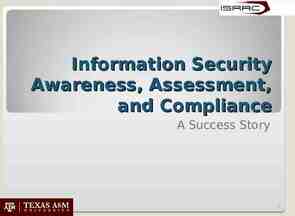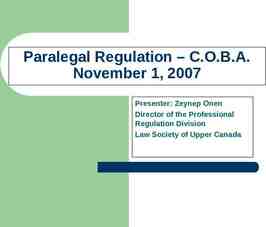Journal 1. 2. 3. Based on your opinion, explain at least four reasons
14 Slides1.08 MB

Journal 1. 2. 3. Based on your opinion, explain at least four reasons you believe that some juveniles commit crimes. (Note: make sure you’re answering the question, “Why do some juveniles remain law abiding, while others commit criminal offenses?”) Explain two ways that the juvenile justice system differs from the adult system of criminal justice. Do you believe that every juvenile offender can be rehabilitated? Why or why not?

Journal n n n After viewing the clip from Hot Coffee, answer the following: How do companies benefit from misconceptions about tort law, and what are the potential legislative impacts of these misconceptions? To what extent can civil cases “make the individual whole again” through awarding damages? What are your Constitutional rights regarding civil cases?

Ch. 15: Legal Rights and Reponsibilities Section Three: American Legal System I. Legal Protections in the Constitution a. Article I: i. Writ of Habeas Corpus: accused must be brought into court and know charges against them ii. Bill of Attainder: may not punish without a trial

Ch. 15: Legal Rights and Reponsibilities iii. Ex Post Facto laws: may not punish for an action that was not illegal when it occurred b. Article III: defines the crime of treason

Ch. 15: Legal Rights and Reponsibilities Section Three: American Legal System II. Rights of those accused a. Fourth Amendment: i. Search and Seizure (see Mapp v. Ohio for exclusionary rule)

Ch. 15: Legal Rights and Reponsibilities *Awful just awful. (See disgusted head-shaking for further elaboration.) b. Fifth Amendment i. Self-incrimination (see Contempt of Court as limitation) ii. Double jeopardy iii. Grand Jury: necessary for determination of evidence * See Miranda v. Arizona for backing of 5th

Ch. 15: Legal Rights and Reponsibilities c. Sixth Amendment i. Be informed of charges against you ii. Speedy and public trial: within 100 days, confront and question witnesses iii. Impartial jury (see option to waive)

Ch. 15: Legal Rights and Reponsibilities d. Eighth Amendment i. Cruel punishments ii. Must fit the crime *See Furman v. Georgia iii. Bail III. Legal Responsibilities and Duties: treat everyone equally; serve jury duty if called; testify in court if called; obey laws; peacefully protest unfair laws

Ch. 16: Civil and Criminal Law I. The Civil Case a. Bringing suit b. Defendant’s response c. Pretrial discussions (possible mediation or arbitration) d. Trial e. [Potential] Appeal

Ch. 16: Civil and Criminal Law Section Two: Criminal Cases I. Parties Involved a. Prosecution (takes place of plaintiff) – Will be representing the state or federal gov’t) b. Defendant II. Penalties for crimes a. Purpose for punishment i. Pay for offense ii. Protect society iii. Deter others iv. Rehabilitate lawbreakers

Ch. 16: Civil and Criminal Law b. Punishment: i. Mandatory sentence: law directs punishment for a crime and the judge must impose it (see “3 Strikes” laws) ii. Indeterminate sentence: minimum and maximum range of punishment are given (common for most criminal statutes) iii. Parole: early release from prison; individual must report to PO until sentence is expired. iv. Probation: supervised warning, typically with stipulations

Ch. 16: Civil and Criminal Law III. The Criminal Case III. The Criminal Case a. Arrest and processing b. First court appearance (hearing and arraignment) c. [Plea bargaining] d. Trial e. Verdict and Sentencing f. [Potential appeal]

Ch. 16: Civil and Criminal Law *Any young person can become a delinquent Section Three: Youth and Courts I. Causes of delinquency a. Juvenile delinquent is any person under the age of 18 who commits a crime b. Researched causes: abuse, neglect, emotional/mental issues, poverty, drug/alcohol abuse

Ch. 16: Civil and Criminal Law II. Stages of Juvenile System a. Purpose: rehabilitation b. Cases: neglect, delinquency, or “illegal actions” for a minor *Depending on the crime a juvenile may be tried as an adult c. Trial: closed hearing (with no jury or public records), sentencing to decide guilt (second hearing to decide punishment (lecture, community service, reformatory, shelter, probation ) III. in re Gault: case that guaranteed accused juveniles the same rights as adults






